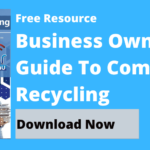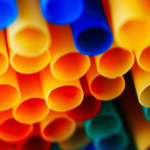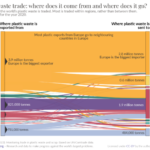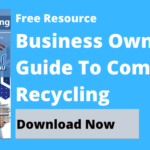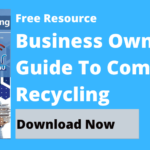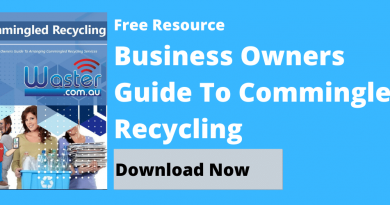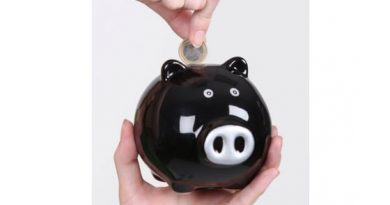Everything You Need To Know About VPR, The Self-Healing Plastic! 🗑️
Energy Disrupter
VPR Self-Healing Plastic 🗑️: We bring to you another interesting piece of news that we recently read on New Atlas that revolves around a new type of plastic that self-heals. Japanese scientists have recently discovered an impressive plastic that, aside from self-healing, is also recyclable and consumable by marine life. In this blog, let us cover everything you need to know about this breakthrough discovery. Read on to learn more below.
2023 is almost ending, but we still see a lot of interesting stuff being invented until the last minute. What we are going to talk about in this blog is no different.
Plastic, as we may all know, harms the environment in different ways. First off, typical plastics biodegrade slowly – around a thousand years or a millennium, as they say.
Second, they harm the wildlife and marine life around us. Animals often mistake plastic for food and eat them, giving them intestinal problems and almost always killing them, in the process. Marine life such as fish and turtles often get stuck with plastic products such as beer rings, which causes harm to them.
Additionally, plastics harm humans, too. For example, microplastics, which have been reported repeatedly for many years, cause a lot of health complications. Just this year, we wrote that we inhale a “credit cards’ worth” of plastic weekly, according to research.
>Download Now: Free PDF Business Owners Guide To Commingled Recycling Bin Services
All of this is bad news, obviously, and the main question is: How can we reduce these instances from happening?
Just this month (November 2023), Japanese scientists have invented a new type of plastic that can deal with these issues. Let us cover more below.
The self-healing plastic in Japan
As we mentioned above, Japanese scientists have invented a new type of room-temperature strong, easily broken-down, self-healing plastic, marking a significant advancement in the field.
To further elaborate, these scientists from the University of Tokyo created a novel plastic material that can degrade more readily, whether within recycling facilities or in the natural environment.
Called VPR, this new type of plastic has different special qualities that have the potential to change the way we view and use plastic in our daily lives.
It is based on epoxy resin vitrimer, a type of plastic known for its strength at normal temperatures but capable of being reshaped and formed with slight heat application. While vitrimers tend to be fragile, the scientists enhanced the formula by incorporating a compound called polyrotaxane.
The result? A self-healing plastic!
The outcome is a new plastic termed VPR, showcasing a wide array of benefits compared to its counterparts. Following a scratch inflicted by a scalpel, it effortlessly restored itself when exposed to 150°C (302°F) heat for merely 60 seconds. When moulded into a crane form and subsequently flattened, it effortlessly reverted to its original crane shape upon heating, outpacing similar materials in speed.
VPR possesses enhanced degradation capabilities, triggered only when it’s no longer required. By applying heat in combination with a specific solvent, its molecular bonds disintegrate, leaving behind only the raw constituents for potential repurposing.
Even if disposed of in the environment, it presents a lesser threat than other plastics, as evidenced by the team submerging it in seawater for 30 days. During this period, it biodegraded by 25%, releasing molecules that serve as sustenance for marine life, as per the team.
What the team said
“VPR is over five times as resistant to breaking as a typical epoxy resin vitrimer,” said Shota Ando, lead author of the study. “It also repairs itself 15 times as fast, can recover its original memorised shape twice as fast, and can be chemically recycled 10 times as fast as the typical vitrimer. It even biodegrades safely in a marine environment, which is new for this material.”
The team of scientists says the material could find some usage in a variety of applications that other plastics are already used for.
“Just to give some examples, infrastructure materials for roads and bridges are often composed of epoxy resins mixed with compounds such as concrete and carbon,” said Ando. “By using VPR, these would be easier to maintain as they would be stronger and healable using heat. Unlike conventional epoxy resins, this new material is hard but stretchable, so it could also be expected to strongly bond materials of different hardness and elongation, such as is needed for vehicle manufacture.”
Key takeaways about VPR, the self-healing plastic
The development of VPR, the self-healing plastic, marks a significant stride in addressing longstanding issues associated with traditional plastics. Its unique properties – self-healing capabilities, efficient degradation post-use and environmental compatibility – show promise in reshaping how we perceive and utilise plastics in various industries.
This innovation offers a multifaceted solution to numerous challenges posed by conventional plastics, such as slow degradation, harm to wildlife and environmental pollution. Its potential applications in infrastructure materials and vehicle manufacturing hint at a wide range of industries that could benefit from its attributes.
Moreover, this breakthrough underscores the ongoing quest for sustainable materials and demonstrates that scientific advancements can lead to solutions that mitigate the adverse effects of plastic on the environment and living organisms.
It’s a compelling example of how science and innovation can drive positive change, offering a glimpse into a future where materials are not just functional but also environmentally conscious and adaptable to our needs.
If you want to learn more about the study, take a look at their journal ACS Materials Letters. You can also check out the University of Tokyo’s article about this self-healing plastic.
More information about Waster
Does your Australian-based business need waste and recycling services? If so, then you have come to the right website!
Please call 1300 WASTER (1300 927 837). You can also email us at enquiries@waster.com.au if you have any further questions. Find the best deals in terms of waste and recycling pricing and services!




